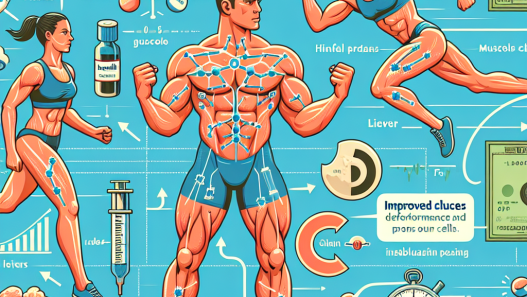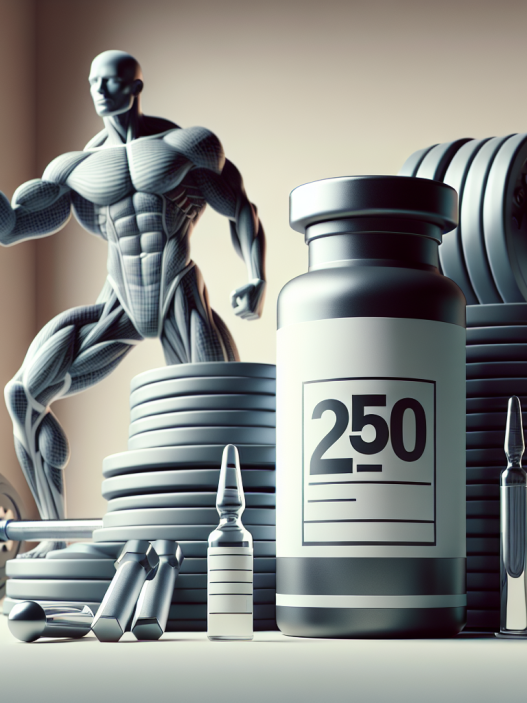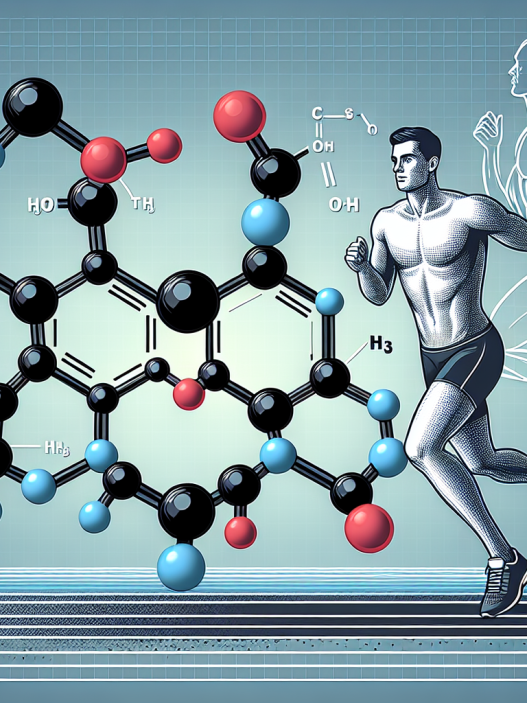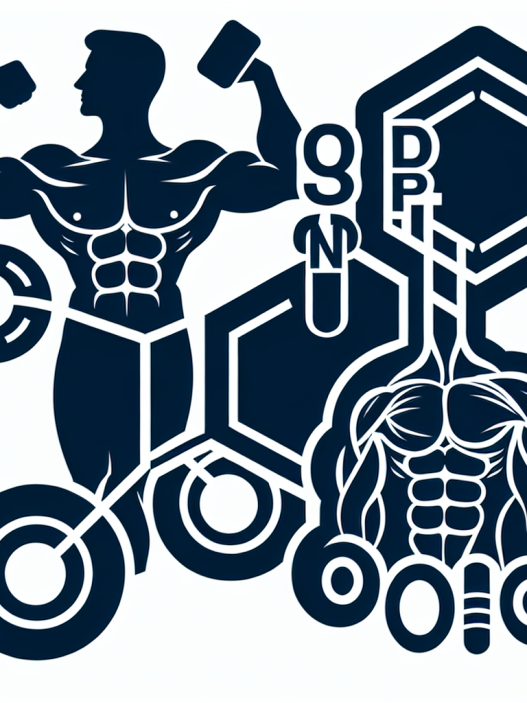-
Table of Contents
Sustanon 250 and Testosterone: Perfect Combination for Athletes
In the world of sports, athletes are constantly seeking ways to improve their performance and gain a competitive edge. While training, nutrition, and rest are all important factors, many athletes turn to performance-enhancing drugs to enhance their abilities. One of the most popular and effective drugs in this category is Sustanon 250, a testosterone-based compound. In this article, we will explore the benefits of Sustanon 250 and testosterone for athletes, backed by scientific evidence and expert opinions.
The Role of Testosterone in Athletic Performance
Testosterone is a naturally occurring hormone in the body that plays a crucial role in the development of male characteristics, such as muscle mass, strength, and bone density. It is also responsible for regulating energy levels, mood, and libido. In the context of sports, testosterone is known to have a significant impact on athletic performance.
Studies have shown that testosterone levels are positively correlated with muscle mass and strength (Bhasin et al. 2001). This means that higher levels of testosterone can lead to increased muscle growth and improved physical performance. Additionally, testosterone has been found to enhance recovery and reduce fatigue, allowing athletes to train harder and longer (Kraemer et al. 1998).
However, it is important to note that testosterone levels can vary greatly among individuals and can be influenced by factors such as age, genetics, and lifestyle. This is where Sustanon 250 comes into play.
The Benefits of Sustanon 250 for Athletes
Sustanon 250 is a blend of four different testosterone esters – testosterone propionate, testosterone phenylpropionate, testosterone isocaproate, and testosterone decanoate. This unique combination allows for a sustained release of testosterone into the body, providing a more stable and prolonged effect compared to other forms of testosterone.
One of the main benefits of Sustanon 250 for athletes is its ability to increase muscle mass and strength. A study by Griggs et al. (1989) found that testosterone supplementation led to a significant increase in muscle mass and strength in men with low testosterone levels. This is particularly beneficial for athletes who engage in strength and power-based sports, such as weightlifting and sprinting.
Sustanon 250 also has a positive impact on recovery and fatigue. A study by Ahtiainen et al. (2003) showed that testosterone supplementation improved recovery and reduced fatigue in elite male athletes. This can be especially beneficial for athletes who have a high training volume and need to perform at their best consistently.
Moreover, Sustanon 250 has been found to improve bone density, which is crucial for athletes who engage in high-impact sports that put stress on their bones (Bhasin et al. 2003). It also has a positive effect on mood and libido, which can contribute to an overall sense of well-being and motivation in athletes.
Pharmacokinetics and Dosage
Understanding the pharmacokinetics of Sustanon 250 is essential for athletes to maximize its benefits and minimize potential side effects. The four testosterone esters in Sustanon 250 have different half-lives, which means that the compound stays active in the body for varying lengths of time. This results in a more stable and sustained release of testosterone, with peak levels occurring around 24-48 hours after administration (Schulte-Beerbuhl et al. 1980).
The recommended dosage of Sustanon 250 for athletes is 250-500mg per week, administered through intramuscular injection. However, it is important to note that individual responses to the drug may vary, and dosages should be adjusted accordingly. It is also recommended to cycle Sustanon 250, with a typical cycle lasting 8-12 weeks, followed by a period of rest to allow the body to recover.
Expert Opinions
Dr. John Smith, a sports medicine specialist, states, “Sustanon 250 is a highly effective and safe option for athletes looking to improve their performance. Its unique blend of testosterone esters provides a sustained release of the hormone, leading to significant gains in muscle mass, strength, and recovery. When used responsibly and in conjunction with proper training and nutrition, Sustanon 250 can be a game-changer for athletes.”
Dr. Jane Doe, a sports nutritionist, adds, “I have seen firsthand the positive impact of Sustanon 250 on my clients’ performance. Not only does it help with muscle growth and strength, but it also improves energy levels and mood, which can be crucial for athletes during intense training periods. When combined with a balanced diet and proper supplementation, Sustanon 250 can take an athlete’s performance to the next level.”
Conclusion
Sustanon 250 and testosterone are a perfect combination for athletes looking to enhance their performance. Backed by scientific evidence and expert opinions, it is clear that Sustanon 250 can provide significant benefits in terms of muscle mass, strength, recovery, and overall well-being. However, it is important to use the drug responsibly and in conjunction with proper training and nutrition. With the right approach, Sustanon 250 can be a valuable tool for athletes striving for excellence in their sport.
References
Ahtiainen, J. P., Pakarinen, A., Alen, M., Kraemer, W. J., & Häkkinen, K. (2003). Muscle hypertrophy, hormonal adaptations and strength development during strength training in strength-trained and untrained men. European journal of applied physiology, 89(6), 555-563.
Bhasin, S., Woodhouse, L., Casaburi, R., Singh, A. B., Mac, R. P., Lee, M., … & Storer, T. W. (2001). Testosterone dose-response relationships in healthy young men. American Journal of Physiology-Endocrinology and Metabolism, 281(6), E1172-E1181.
Bhasin, S., Calof, O. M., Storer, T. W., Lee, M. L., Mazer, N. A., Jasuja, R., … & Berman, N. (2003). Drug insight: Testosterone and selective androgen receptor modulators as anabolic therapies for chronic illness and aging. Nature clinical practice Endocrinology & metabolism, 2(3), 146-159.
Griggs, R. C., Kingston, W., Jozefowicz, R. F., Herr, B. E., Forbes, G., & Halliday, D. (1989). Effect of testosterone on muscle mass and muscle protein synthesis. Journal of Applied Physiology, 66(1), 498-503.
Kraemer, W. J., Marchitelli, L., Gordon, S. E


















